SEARCH BY TITLE
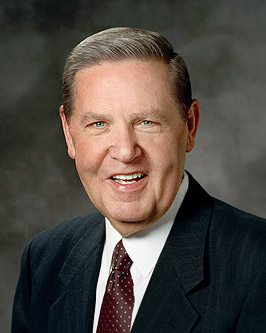 “An High Priest of Good Things to Come”
“An High Priest of Good Things to Come”
Always remember in that biblical story that He was out there on the water also, that He faced the worst of it right along with the newest and youngest and most fearful. Only one who has fought against those ominous waves is justified in telling us—as well as the sea—to “be still.” Only one who has taken the full brunt of such adversity could ever be justified in telling us in such times to “be of good cheer.” Such counsel is not a jaunty pep talk about the power of positive thinking, though positive thinking is much needed in the world. No, Christ knows better than all others that the trials of life can be very deep and we are not shallow people if we struggle with them. But even as the Lord avoids sugary rhetoric, He rebukes faithlessness and He deplores pessimism. He expects us to believe! No one’s eyes were more penetrating than His, and much of what He saw pierced His heart. Surely His ears heard every cry of distress, every sound of want and despair. To a degree far more than we will ever understand, He was “a man of sorrows, and acquainted with grief.” Indeed, to the layman in the streets of Judea, Christ’s career must have seemed a failure, a tragedy, a good man totally overwhelmed by the evils surrounding Him and the misdeeds of others. He was misunderstood or misrepresented, even hated from the beginning. No matter what He said or did, His statements were twisted, His actions suspected, His motives impugned. In the entire history of the world no one has ever loved so purely or served so selflessly—and been treated so diabolically for His effort. Yet nothing could break His faith in His Father’s plan or His Father’s promises. Even in those darkest hours at Gethsemane and Calvary, He pressed on, continuing to trust in the very God whom He momentarily feared had forsaken Him. Because Christ’s eyes were unfailingly fixed on the future, He could endure all that was required of Him, suffer as no man can suffer except it be “unto death,” as King Benjamin said, look upon the wreckage of individual lives and the promises of ancient Israel lying in ruins around Him and still say then and now, “Let not your heart be troubled, neither let it be afraid.” How could He do this? How could He believe it? Because He knows that for the faithful, things will be made right soon enough. He is a King; He speaks for the crown; He knows what can be promised.
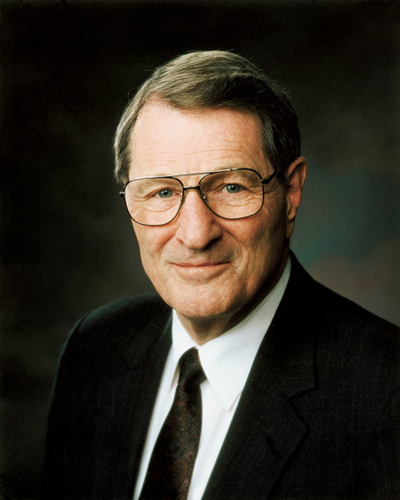 But For a Small Moment
But For a Small Moment
The Church is fully Christ-centered. The Church is also Christ-powered, and it is also designed to help its members become more Christlike. Since the gospel of Jesus Christ focuses on the truths that deal with everlasting things and not on obsolescent realities, it is very important for us, brothers and sisters, to recognize that the truths in which we traffic as members of the kingdom pertain to eternity as well as to this life.I am surprised (I would be amused if the cost were not so great) that people think they can remove the foundations of our social structure—things like work, chastity, and family and then wonder why other things crumble. You can’t remove the foundation of a building while standing inside and not be hit with falling plaster. We are now in the interesting position in the kingdom of trying to warn about what is happening in the world and, at the same time, of keeping ourselves personally secure. We must be Christ-centered individually. We must have his and God’s power to do our work, and we must take seriously the challenge of becoming more Christlike. You’re soon going to go out into a world full of marshmallow men. Like the act of putting a finger into a marshmallow, there is no core in these men, there is no center, and when one removes his finger, the marshmallow resumes its former shape. We are in a world of people who want to yield to everything—to every fad and to every fashion. It is incredibly important that we be committed to the core—committed to those things that matter, about which our Father in heaven has leveled with us through his Son, Jesus Christ, and his prophets.
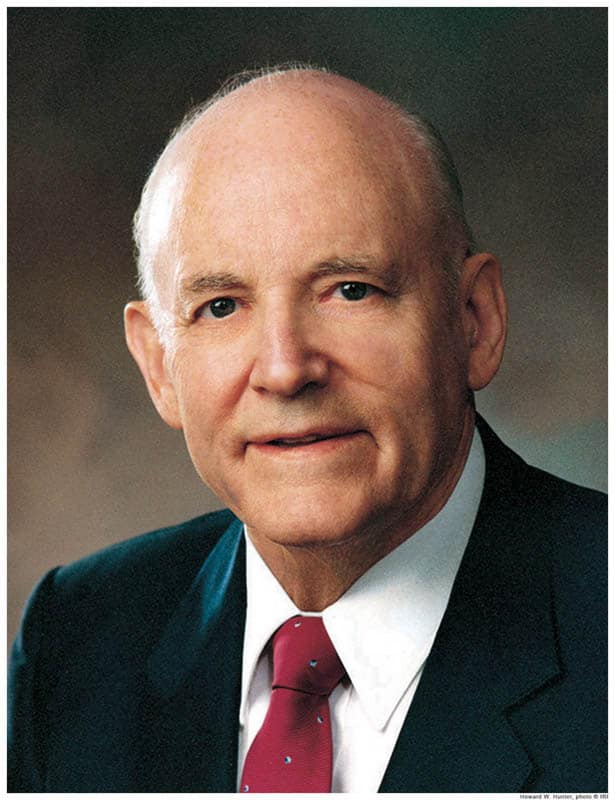 The God That Doest Wonders
The God That Doest Wonders
How fitting that just one week ago all of Christendom celebrated on Easter Day the great restoring and renewing resurrection of the Lord Jesus Christ, declaring all of the joy and eternal promise that event holds for mankind. With you, I welcome this season of the year which reminds us that God is a God of miracles, that his Only Begotten Son is “the resurrection, and the life: he that believeth in [him], though he were dead, yet shall he live.” In this beautiful time of year, we remember that death has no sting and the grave has no dominion. I testify that after every winter’s season there is the miracle of springtime ahead—in our personal journey through life as well as in nature. These restorations and renewals are a gift from the Lord Jesus Christ, the ultimate “man for all seasons.” I wish to speak briefly of some of those divine moments in our lives when the Savior reaches out to redeem and make whole and strengthen us. The Psalmist has written: “I cried unto God with my voice, … and he gave ear unto me. … “And I said, This is my infirmity: but I will remember the years of the right hand of the most High. … “Thou art the God that doest wonders: thou hast declared thy strength among the people.” Among the signs of the true church, and included in the evidences of God’s work in the world, are the manifestations of his power which we are helpless to explain or to fully understand. In the scriptures these divine acts and special blessings are variously referred to as miracles or signs or wonders or marvels. Not surprisingly, these signs and marvels were most evident in the life and ministry of Jesus Christ, the very Son of God himself. But startling and wonder-filled as they were, Christ’s many miracles were only reflections of those greater marvels which his Father had performed before him and continues to perform all around us. Indeed, the Savior’s humble performance of such obviously divine acts may be just one very special application of the declarations he made: “The Son can do nothing of himself, but what he seeth the Father do: for what things soever he doeth, these also doeth the Son likewise” and “I do nothing of myself; but as my Father hath taught me”.
 His Final Hours
His Final Hours
A few years less than 2,000 years ago this very day, the initial events of the most important week in human history began to unfold outside of Jerusalem near the little village of Bethany. Jesus of Nazareth, with scarcely a three-year ministry among his countrymen, left the home of his friends Mary, Martha, and Lazarus and walked resolutely toward the gates of Jerusalem. Some of the inhabitants of that ancient city considered him to be a blasphemer, a demon, a transgressor of Jewish law. Others believed him to be a prophet, the Messiah, the Son of the living God. Whatever the opinions may have been, all Judea knew of this man who taught with power and authority though he was neither Scribe nor Pharisee. . . He did what no other has ever done—he arose the third day from his own tomb, a tomb once again filled with the light and the life of the world, and he ascended to his Father. Jesus of Nazareth was now Jesus the Christ; he had conquered death. In contrast to the haste and busy affairs of our day, his life was one of simplicity. He lived in humble circumstances. He had not surrounded himself with the proud and mighty of the earth, but with the poor, the humble, and those of modest circumstances. There was nothing complicated about his life or teaching. The words he spoke relate to people of all walks of life—to all those who listened in his day and to all those who will listen today. History bears well the burden of providing ample evidence of his death. As surely as I know he died, I have the quiet yet positive assurance that he lives today—the Savior of every person who has been born or will be born upon this earth.
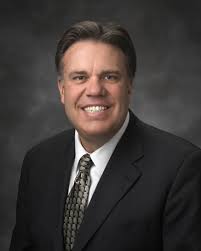 His Grace Is Sufficient
His Grace Is Sufficient
Christ asks us to show faith in Him, repent, make and keep covenants, receive the Holy Ghost, and endure to the end. By complying, we are not paying the demands of justice—not even the smallest part. Instead, we are showing appreciation for what Jesus Christ did by using it to live a life like His. Justice requires immediate perfection or a punishment when we fall short. Because Jesus took that punishment, He can offer us the chance for ultimate perfection and help us reach that goal. He can forgive what justice never could, and He can turn to us now with His own set of requirements. “So what’s the difference?” the girl asked. “Whether our efforts are required by justice or by Jesus, they are still required.” “True,” I said, “but they are required for a different purpose. Fulfilling Christ’s requirements is like paying a mortgage instead of rent or like making deposits in a savings account instead of paying off debt. You still have to hand it over every month, but it is for a totally different reason.” . . . The grace of Christ is sufficient—sufficient to cover our debt, sufficient to transform us, and sufficient to help us as long as that transformation process takes. The Book of Mormon teaches us to rely solely on “the merits, and mercy, and grace of the Holy Messiah”. As we do, we do not discover—as some Christians believe—that Christ requires nothing of us. Rather, we discover the reason He requires so much and the strength to do all He asks. Grace is not the absence of God’s high expectations. Grace is the presence of God’s power.
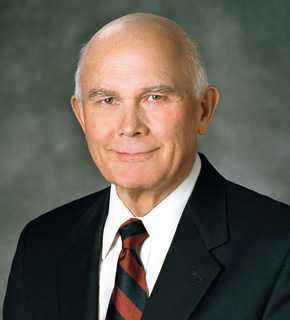 The Historicity of the Book of Mormon
The Historicity of the Book of Mormon
When Jesus came into the coasts of Caesarea Philippi, he asked his disciples, saying, Whom do men say that I the Son of man am? And they said, Some say that thou art John the Baptist: some, Elias; and others, Jeremias, or one of the prophets. He saith unto them, But whom say ye that I am? And Simon Peter answered and said, Thou art the Christ, the Son of the living God. And Jesus answered and said unto him, Blessed art thou, Simon Barjona: for flesh and blood hath not revealed it unto thee, but my Father which is in heaven…. Then charged he his disciples that they should tell no man that he was Jesus the Christ. That was the Lord’s teaching on the value of revelation by the Spirit. In the next three verses of this same sixteenth chapter of Matthew we have the Savior’s blunt teaching on the contrasting value of this same Apostle’s reasoning by worldly values: From that time forth began Jesus to shew unto his disciples, how that he must go unto Jerusalem, and suffer many things of the elders and chief priests and scribes, and be killed, and be raised again the third day. Then Peter took him, and began to rebuke him, saying, Be it far from thee, Lord: this shall not be unto thee. But he turned, and said unto Peter, Get thee behind me, Satan: thou art an offence unto me: for thou savourest not the things that be of God, but those that be of men. I suggest that we do the same thing and deserve the same rebuke as Peter whenever we subordinate a witness of the spirit (“the things that be of God”) to the work of scholars or the product of our own reasoning by worldly values (the things that “be of men”). Human reasoning cannot place limits on God or dilute the force of divine commandments or revelations. Persons who allow this to happen identify themselves with the unbelieving Nephites who rejected the testimony of the prophet, Samuel. The Book of Mormon says, “They began to reason and to contend among themselves, saying: That it is not reasonable that such a being as a Christ shall come”. Persons who practice that kind of “reasoning” deny themselves the choice experience someone has described as our heart telling us things that our mind does not know.
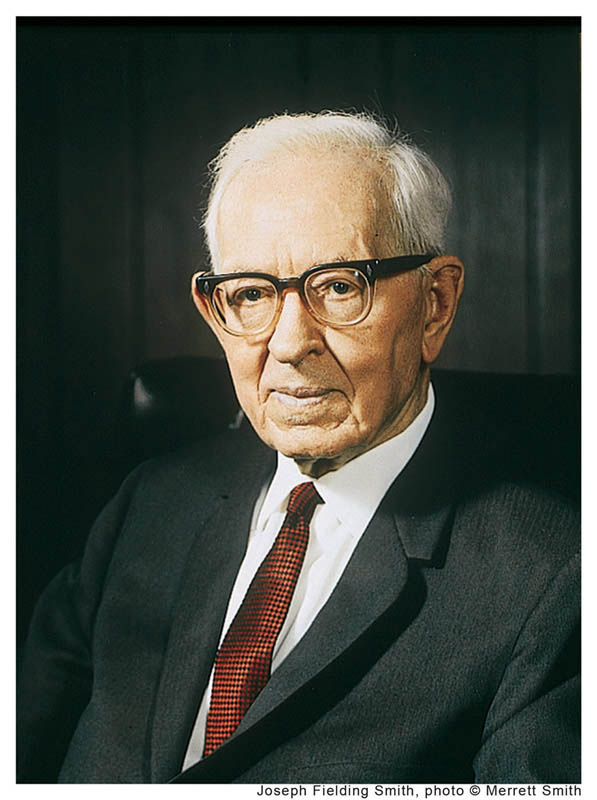 “I Know That My Redeemer Liveth”
“I Know That My Redeemer Liveth”
Our responsibility in the Church is to worship the Lord in spirit and in truth, and this we are seeking to do with all our heart, might, and mind. Jesus said: “Thou shalt worship the Lord thy God, and him only shalt thou serve.” We believe that worship is far more than prayer and preaching and gospel performance. The supreme act of worship is to keep the commandments, to follow in the footsteps of the Son of God, to do ever those things that please him. It is one thing to give lip service to the Lord; it is quite another to respect and honor his will by following the example he has set for us. Our Savior, Jesus Christ, is the great Exemplar. Our mission is to pattern our lives after him and do the things he wants us to do. “… what manner of men ought ye to be?” he asked his Nephite disciples, and then he answered: “Verily I say unto you, even as I am.” I rejoice in the privilege of following in his footsteps. I am grateful for the words of eternal life which I have received, I am very glad to say, in this world, and for the hope of eternal life which is mine in the world to come if I will remain faithful and true to the end. All my life I have studied and pondered the principles of the gospel and sought to live the laws of the Lord. As a result there has come into my heart a great love for him and for his work and for all those who seek to further his purposes in the earth. I know that he lives, that he rules in the heavens above and in the earth beneath, and that his purposes shall prevail. He is our Lord and our God. As he himself said to Joseph Smith: “The Lord is God, and beside him there is no Savior. “Great is his wisdom, marvelous are his ways, and the extent of his doings none can find out.”
 “In Him All Things Hold Together”
“In Him All Things Hold Together”
Because Jesus was brilliant beyond our comprehension, he knew even premortally, though intellectually, what he was volunteering to do. Yet he had to experience it all personally—especially the awful agony of Gethsemane and Calvary. He who is “more intelligent than they all” is also more meek than they all! He went meekly forward and partook of the most bitter cup—and did so without becoming bitter! Jesus descended below all things in order to be able to comprehend all things. Thus he is not only a fully atoning Savior but is a fully comprehending Savior as well! Christ somehow came to know—just as specifically prophesied—our griefs, sorrows, pains, sicknesses, afflictions, and infirmities. He did so, declared Alma, that he might know, according to the flesh, how to succor and to help us in the midst of our infirmities. Only in restoration scriptures—specifically the Book of Mormon—is Jesus’ atonement referred to as the “infinite atonement”. It was “infinite” in several dimensions. First, in what is called the “great and last sacrifice,” the sacrifice of a mere animal or an imperfect mortal would not do. It required the sacrifice of an infinite being, an eternal and sinless God. Jesus, you will recall, volunteered premortally: “Here am I, send me”. Never has anyone offered to do so much for so many with so few words! As an infinite being, Jesus had the unique power to put down and take up his life. Jesus’ atonement also had infinite impact affecting all mankind. “For as in Adam all die, even so in Christ shall all be made alive”. Third, his atonement involved infinite suffering—suffering beyond our comprehension. I will note especially some of his suffering. The Atonement fulfills many prophesies. Jesus was to be spat upon, struck, scourged. He would be given vinegar and gall. He would issue a soul cry, the very words of which were prophesied by David in a Messianic psalm. None of his bones was to be broken.
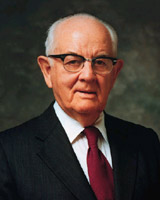 Jesus: The Perfect Leader
Jesus: The Perfect Leader
Jesus knew who he was and why he was here on this planet. That meant he could lead from strength rather than from uncertainty or weakness. Jesus operated from a base of fixed principles or truths rather than making up the rules as he went along. Thus, his leadership style was not only correct, but also constant. So many secular leaders today are like chameleons; they change their hues and views to fit the situation—which only tends to confuse associates and followers who cannot be certain what course is being pursued. Those who cling to power at the expense of principle often end up doing almost anything to perpetuate their power. Jesus said several times, “Come, follow me.” His was a program of “do what I do,” rather than “do what I say.” His innate brilliance would have permitted him to put on a dazzling display, but that would have left his followers far behind. He walked and worked with those he was to serve. His was not a long-distance leadership. He was not afraid of close friendships; he was not afraid that proximity to him would disappoint his followers. The leaven of true leadership cannot lift others unless we are with and serve those to be led. Jesus kept himself virtuous, and thus, when his closeness to the people permitted them to touch the hem of his garment, virtue could flow from him.
 Jesus Christ, Our Redeemer
Jesus Christ, Our Redeemer
I testify that the Lord came “into the world that he may save all men if they will hearken unto his voice,” that He suffered “the pains of all men,” and that He was crucified “that the resurrection might pass upon all men, that all might stand before him at the great and judgment day.” I witness that “he commandeth all men that they must repent, and be baptized in his name, having perfect faith in [Him], … or they cannot be saved in the kingdom of God.” Repent, be baptized, and have perfect faith in Him. These are some of the essential requirements that must be met. I know that “there is no other way nor means whereby man can be saved, only through the atoning blood of Jesus Christ.” I witness that Jesus Christ atoned “for the sins of the world, to bring about the plan of mercy, to appease the demands of justice, that God might be a perfect, just God, and a merciful God also.” I testify that except for the Atonement of the Holy Redeemer, the demands of justice would prevent every soul born on earth from returning to the presence of God, to partake of His glory and exaltation, for all make mistakes for which we cannot personally appease justice. I witness that except for the “infinite atonement” of Christ, we could not return to God at death and, as Jacob solemnly warned, “our spirits [would] become subject to … the devil, to rise no more. And our spirits [would] become like unto him, and we [would] become devils, angels to a devil, to be shut out from the presence of our God, … to remain with the father of lies, in misery.” I witness that “redemption cometh in and through the Holy Messiah; … unto all those who have a broken heart and a contrite spirit; and unto none else can the ends of the law be answered.” This absolute requisite of “a broken heart and a contrite spirit” prescribes the need to be submissive, compliant, humble (that is, teachable), and willingly obedient. Finally, I witness “how great the importance to make these things known unto the inhabitants of the earth, that they may know that there is no flesh that can dwell in the presence of God, save it be through the merits, and mercy, and grace of the Holy Messiah.” Jesus Christ possessed merits that no other child of Heavenly Father could possibly have. He was a God, Jehovah, before His birth in Bethlehem. His Father not only gave Him His spirit body, but Jesus was His Only Begotten Son in the flesh. Our Master lived a perfect, sinless life and therefore was free from the demands of justice. He was and is perfect in every attribute, including love, compassion, patience, obedience, forgiveness, and humility. His mercy pays our debt to justice when we repent and obey Him. Even with our best efforts to obey His teachings we will still fall short, yet because of His grace we will be saved “after all we can do.”
 The Lord Expects Righteousness
The Lord Expects Righteousness
As Latter-day Saints we must ever be vigilant. The way for each person and each family to guard against the slings and arrows of the Adversary and to prepare for the great day of the Lord is to hold fast to the iron rod, to exercise greater faith, to repent of our sins and shortcomings, and to be anxiously engaged in the work of His kingdom on earth, which is The Church of Jesus Christ of Latter-day Saints. Herein lies the only true happiness for all our Father’s children. We invite all men and women of good will everywhere to join in this divine and redeeming latter-day work. . . Now, my dear brothers and sisters, there are some in the world who mistakenly say that we are a non-Christian Church—a cult; that we worship Joseph Smith rather than our Savior, Jesus Christ. How far from the truth they are! What heresy! The Lord declared, “For thus shall my church be called in the last days, even The Church of Jesus Christ of Latter-day Saints.” We have a hope in Christ here and now. He died for our sins. Because of Him and His gospel, our sins are washed away in the waters of baptism; sin and iniquity are burned out of our souls as though by fire; and we become clean, we have a clear conscience, and we gain that peace which passeth understanding. We believe, and it is our testimony, and we proclaim it to the world, “that there shall be no other name given nor any other way nor means whereby salvation can come unto the children of men, only in and through the name of Christ, the Lord Omnipotent.” We know, and it is our testimony, and we proclaim it to the world, that to be saved men must “believe that salvation was, and is, and is to come, in and through the atoning blood of Christ, the Lord Omnipotent.” “And we talk of Christ, we rejoice in Christ, we preach of Christ, we prophesy of Christ, and we write according to our prophecies, that our children may know to what source they may look for a remission of their sins.” For the past century and a half since the Restoration, beginning with the Prophet Joseph Smith, the latter-day prophets of God have raised their voices in clarity and with authority and truth as they have borne their testimonies of the divinity of this great latter-day work and the redemptive power of the gospel of Jesus Christ. To the testimonies of these mighty men I add my testimony. I know that Jesus Christ is the Son of the living God and that He was crucified for the sins of the world. He is my friend, my Savior, my Lord and my God. With all my heart I pray that the Saints may keep His commandments, have His Spirit to be with them, and gain an eternal inheritance with Him in celestial glory.
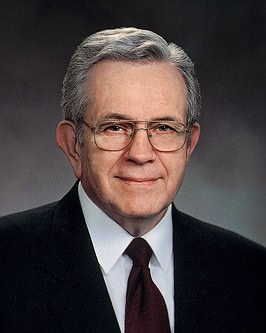 The Mediator
The Mediator
I have not, to my knowledge, in my ministry said anything more important. I intend to talk about the Lord, Jesus Christ, about what He really did—and why it matters now. One may ask, “Aside from the influence He has had on society, what effect can He have on me individually?” To answer that question I ask, have you ever been hard-pressed financially? Have you ever been confronted with an unexpected expense, a mortgage coming due, with really no idea how to pay it? Such an experience, however unpleasant, can be, in the eternal scheme of things, very, very useful. If you miss that lesson you may have to make it up before you are spiritually mature, like a course that was missed or a test that was failed. That may be what the Lord had in mind when He said, “It is easier for a camel to go through the eye of a needle, than for a rich man to enter into the kingdom of God.” Those who have faced a foreclosure know that one looks helplessly around, hoping for someone, anyone, to come to the rescue. This lesson is so valuable because there is a spiritual account, with a balance kept and a settlement due, that no one of us will escape. To understand this spiritual debt we must speak of such intangibles as love, faith, mercy, justice. Although these virtues are both silent and invisible, surely I do not need to persuade you that they are real. We learn of them by processes that are often silent and invisible as well. . We become so accustomed to learning through our physical senses—by sight and sound and smell, by taste and touch—that some of us seem to learn in no other way. But there are spiritual things that are not registered that way at all. Some things we simply feel, not as we feel something we touch, but as we feel something we feel. There are things, spiritual things, that are registered in our minds and recorded in our memories as pure knowledge. A knowledge of “things which have been, things which are, things which must shortly come to pass.” As surely as we know about material things, we can come to know of spiritual things. Each of us, without exception, one day will settle that spiritual account. We will, that day, face a judgment for our doings in mortal life and face a foreclosure of sorts.
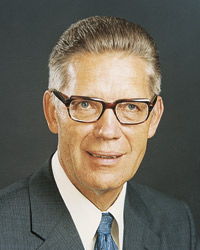 Our Relationship With The Lord
Our Relationship With The Lord
We know thereby that he is a personal Being in whose image man was made. We know that he has a body of flesh and bones as tangible as man’s; that he is a resurrected, glorified, and perfected Being; and that he lives in the family unit. We know that we are his spirit children; that he endowed us with the divine gift of agency; and that he ordained the laws whereby we might advance and progress and become like him. We know that God is the only supreme and independent Being in whom all fullness and perfection dwell and that he is omnipotent, omniscient, and, by the power of his Spirit, omnipresent. We know “the Almighty God gave his Only Begotten Son”, as the scriptures attest, to ransom man from the temporal and spiritual death brought into the world by the fall of Adam and to put into operation all of the terms and conditions of the Father’s plan. We know that the Holy Ghost, as a “personage of Spirit,” is both a Revelator and a Sanctifier and that his chief mission is to bear record of the Father and the Son. Thus there are, in the Eternal Godhead, three persons—God the first, the Creator; God the second, the Redeemer; and God the third, the Testator. These three are one—one God if you will—in purposes, in powers, and in perfections. But each has his own severable work to perform, and mankind has a defined and known and specific relationship to each one of them. It is of these relationships that we shall now speak. Let us set forth those doctrines and concepts that a gracious God has given to us in this day and which must be understood in order to gain eternal life. They are: 1. We worship the Father and him only and no one else. 2. We love and serve both the Father and the Son. 3. Christ himself loves, serves, and worships the Father. 4. The plan of salvation is the gospel of the Father 5. Christ worked out his own salvation by worshiping the Father. 6. All men must worship the Father in the same way Christ did in order to gain salvation. 7. The Father sent the Son to work out the infinite and eternal atonement. 8. The Son came to do the will of the Father in all things. 9. God, through Christ, is reconciling men to himself. 10. Christ is the Mediator between God and man. 11. Christ is our Intercessor with the Father, our Advocate in the courts above. 12. Our eternal fellowship is with the Father and the Son. 13. God was in Christ manifesting himself to the world. 14. Christ is the Revealer of the Father 15. Christ is the Way to the Father. 16. Christ proclaims the gospel of the Father. 17. Christ glorifies the Father and so must we.
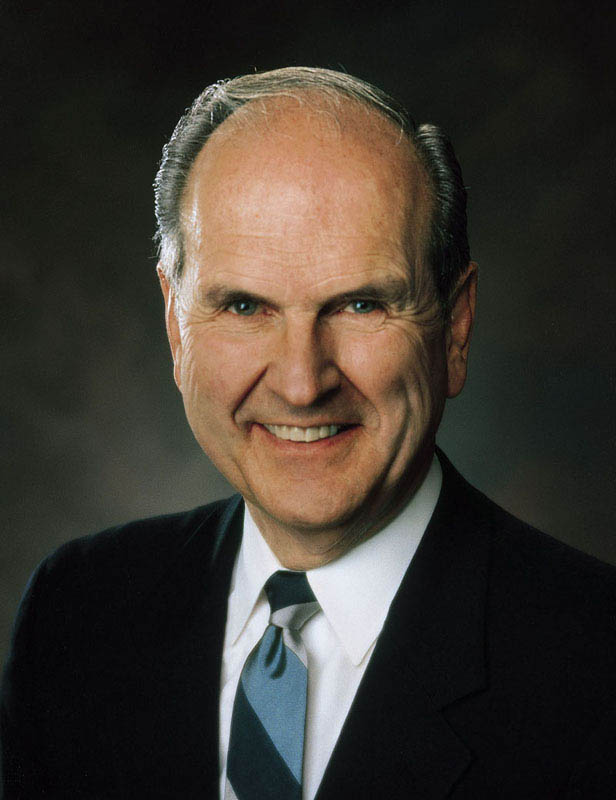 Perfection Pending
Perfection Pending
In Matt. 5:48, the term perfect was translated from the Greek teleios, which means “complete.” Teleios is an adjective derived from the noun telos, which means “end.” The infinitive form of the verb is teleiono, which means “to reach a distant end, to be fully developed, to consummate, or to finish.” Please note that the word does not imply “freedom from error”; it implies “achieving a distant objective.” In fact, when writers of the Greek New Testament wished to describe perfection of behavior—precision or excellence of human effort—they did not employ a form of teleios; instead, they chose different words. Teleios is not a total stranger to us. From it comes the prefix tele- that we use every day. Telephone literally means “distant talk.” Television means “to see distantly.” Telephoto means “distant light,” and so on. With that background in mind, let us consider another highly significant statement made by the Lord. Just prior to his crucifixion, he said that on “the third day I shall be perfected.” Think of that! The sinless, errorless Lord—already perfect by our mortal standards—proclaimed his own state of perfection yet to be in the future. His eternal perfection would follow his resurrection and receipt of “all power … in heaven and in earth.” The perfection that the Savior envisions for us is much more than errorless performance. It is the eternal expectation as expressed by the Lord in his great intercessory prayer to his Father—that we might be made perfect and be able to dwell with them in the eternities ahead. The Lord’s entire work and glory pertains to the immortality and eternal life of each human being. He came into the world to do the will of his Father, who sent him. His sacred responsibility was foreseen before the creation and was foretold by all his holy prophets since the world began. The atonement of Christ fulfilled the long-awaited purpose for which he had come to the earth. His concluding words upon Calvary’s cross referred to the culmination of his assignment—to atone for all humankind. Then he said, “It is finished.” Not surprisingly, the Greek word from which finished was derived is teleios.
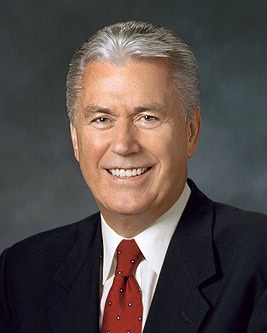 Point Of Safe Return
Point Of Safe Return
Protection against the influence of the devil comes through the gospel of Jesus Christ. It is the good news that Jesus Christ has made a perfect Atonement for mankind. It is the message of love, hope, and mercy that there is a reconciliation of man with God. Sin is the willful transgression of divine law. The Atonement of Jesus Christ is the gift of God to His children to correct and overcome the consequences of sin. God loves all of His children, and He will never cease to love and to hope for us. The plan of our Heavenly Father is clear, and His promises are great: “For God sent not his Son into the world to condemn the world; but that the world … might be saved” Christ came to save us. If we have taken a wrong course, the Atonement of Jesus Christ can give us the assurance that sin is not a point of no return. A safe return is possible if we will follow God’s plan for our salvation. We have received this plan from the highest authority in the universe, even God, our Heavenly Father. This plan was prepared from before the foundation of the earth. It is a great plan of happiness, a plan of mercy, a plan of redemption, a plan of salvation. This plan enables us to experience a physical existence, including mortality, a time of probation, and to return to the presence of God and live in eternal happiness and glory. It is explained in the doctrines of the restored gospel of Jesus Christ. Following this plan has beautiful eternal consequences for us individually, for our families, for generations to come, and even for generations who went before. The plan includes divine reconciliation and forgiveness.
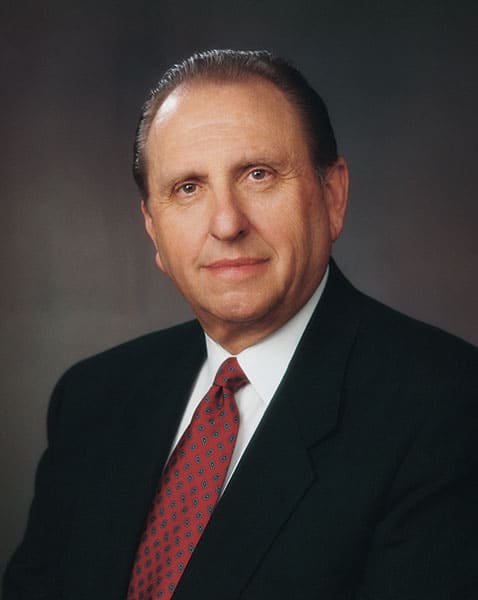 Ponder the Path of Thy Feet
Ponder the Path of Thy Feet
We, with Jesus, can walk the path of obedience. It will not always be easy, but let our watchword be the heritage bequeathed us by Samuel: “Behold, to obey is better than sacrifice, and to hearken than the fat of rams.” Let us remember that the end result of disobedience is captivity and death, while the reward for obedience is liberty and eternal life. We, like Jesus, can walk the path of service. As a glowing searchlight of goodness is the life of Jesus as He ministered among men. He brought strength to the limbs of the cripple, sight to the eyes of the blind, hearing to the ears of the deaf. Jesus walked the path of prayer. He taught us how to pray by giving us the beautiful prayer we know as the Lord’s Prayer. And who can forget His prayer in Gethsemane, “Not my will, but thine, be done”? Other instructions given to us by the Savior are at our fingertips, found in the holy scriptures. In His Sermon on the Mount, He tells us to be merciful, to be humble, to be righteous, to be pure in heart, to be peacemakers. He instructs us to stand up bravely for our beliefs, even when we are ridiculed and persecuted. He asks us to let our lights shine so that others may see them and may desire to glorify our Father in Heaven. He teaches us to be morally clean in both our thoughts and our actions. He tells us it is far more important to lay up treasures in heaven than on earth. His parables teach with power and authority. With the account of the good Samaritan, He teaches us to love and to serve our neighbors. In His parable of the talents, He teaches us to improve ourselves and to strive for perfection. With the parable of the lost sheep, He instructs us to go to the rescue of those who have left the path and have lost their way. As we strive to place Christ at the center of our lives by learning His words, by following His teachings, and by walking in His path, He has promised to share with us the eternal life that He died to gain. There is no higher end than this, that we should choose to accept His discipline and become His disciples and do His work throughout our lives. Nothing else, no other choice we make, can make of us what He can.
 The Purifying Power of Gethsemane
The Purifying Power of Gethsemane
I feel, and the Spirit seems to accord, that the most important doctrine I can declare, and the most powerful testimony I can bear, is of the atoning sacrifice of the Lord Jesus Christ. His atonement is the most transcendent event that ever has or ever will occur from Creation’s dawn through all the ages of a never-ending eternity. It is the supreme act of goodness and grace that only a god could perform. Through it, all of the terms and conditions of the Father’s eternal plan of salvation became operative. Through it are brought to pass the immortality and eternal life of man. Through it, all men are saved from death, hell, the devil, and endless torment. And through it, all who believe and obey the glorious gospel of God, all who are true and faithful and overcome the world, all who suffer for Christ and his word, all who are chastened and scourged in the Cause of him whose we are—all shall become as their Maker and sit with him on his throne and reign with him forever in everlasting glory. . . And now, as pertaining to this perfect atonement, wrought by the shedding of the blood of God—I testify that it took place in Gethsemane and at Golgotha, and as pertaining to Jesus Christ, I testify that he is the Son of the Living God and was crucified for the sins of the world. He is our Lord, our God, and our King. This I know of myself independent of any other person. I am one of his witnesses, and in a coming day I shall feel the nail marks in his hands and in his feet and shall wet his feet with my tears. But I shall not know any better then than I know now that he is God’s Almighty Son, that he is our Savior and Redeemer, and that salvation comes in and through his atoning blood and in no other way.
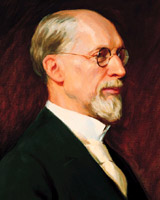 Sharing What We Believe
Sharing What We Believe
I remember I attended a conference in Canada once, and it so happened that I referred in my remarks during the evening to our faith in the divine mission of Jesus Christ, that we believed that the Lord prepared the way for the coming of Jesus of Nazareth; prepared Mary to be his mother and Joseph to act as his earthly father. And then Herod, in an attempt to destroy him, sent out a decree that the children in Bethlehem and the country round about who were two years old and under were to be slain, and he became one of the greatest butchers of all time. Joseph and Mary took Jesus and departed from the land of their birth and their home and went down into Egypt. They returned later when that wicked king had died, and the boy grew up in Nazareth and other places in that section. When he was twelve years old, he went with his parents to the temple. They were there to perform services in the temple as was customary with those good Hebrew people in those days. When Joseph and Mary started home, they missed the boy. They returned to Jerusalem and found him reasoning with the wise men in the temple. When he was reproached by his parents for causing them such anxiety, his answer was, “. . . wist ye not that I must be about my Father’s business?” (Luke 2:49.) Remember he was only twelve years old. When Jesus became a man, he went to the River Jordan where John was baptizing “because there was much water there,” and he needed more than a teacup or a basin full-Jesus of Nazareth, who was to become the Savior of the world, went to John and applied for baptism, and John recognizing him as an unusual character said, “. . . I have need to be baptized of thee, and comest thou to me?” “And Jesus answering said unto him, Suffer it to be so now: for thus it becometh us to fulfil all righteousness. Then he suffered him.” (Matt. 3:14-15.) And Jesus of Nazareth went down into the water and was baptized by John, and when he came up out of the water, the Holy Ghost came and descended upon him in the form of a dove. And a voice from heaven said, “This is my beloved Son, in whom I am well pleased.” (Ibid., 3:17.) Could there be anything more definite than that? Our wonderful Bible contains all that information and much more, of course. When people say or think that we do not believe in the divine mission of Jesus Christ, let them know that we believe all that the Bible teaches in reference to him. We believe the story of how he organized his people and taught them, and how eventually, at the insistence of his own people, he was crucified by the representatives of the Roman government; not for any wrong he had done, but because he was too good to live among that people.
 The Whole World Groaneth
The Whole World Groaneth
I want to say to the Latter-day Saints that it is our duty to put our faith in the revealed word of God, to accept that which has come through inspiration, through revelation unto his servants, the prophets, both ancient and modern, and whenever you find any doctrine, any idea, any expression from any source whatsoever, that is in conflict with that which the Lord has revealed and which is found in the holy scriptures, you may be assured that it is false and you should put it aside and stand firmly grounded in the truth in prayer and in faith, relying upon the Spirit of the Lord, for knowledge, for wisdom, concerning these principles of truth. If you will walk in the light as I have read here, and will receive the doctrines of our Redeemer, he will grant unto you, through the inspiration that will come from the Spirit of the Lord, a testimony of the truth and you need not walk in darkness nor in doubt, but may have a clear and a distinct comprehension, and understanding of the truth which will make you free. It is our duty to seek the Lord, to obey his laws, to keep his commandments, to put away from us lightmindedness, foolishness, and the false theories, notions, and philosophies of the world, and to accept with fulness of heart and in humility these solemn, God-given principles which will bring unto us eternal life in the Celestial kingdom.
